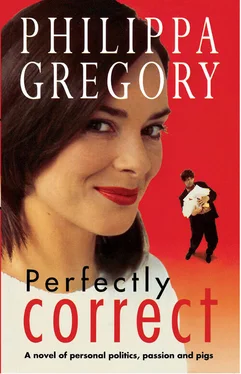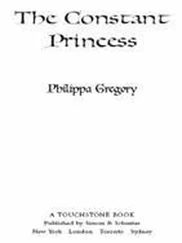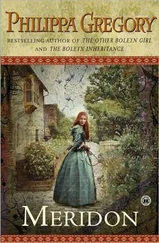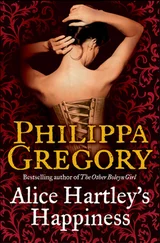Louise hesitated at the garden gate. It was as if her fantasy had been made manifest, summoned by desire out of the dark scented night. What if a dark head brushed the top of the door frame, and warm brown eyes met hers? What if the gypsy himself had come for her; and nothing in her life – not her long sophisticated love-affair with Toby, not her pedantic work, not her affiliation to the Women’s Movement – would ever be the same again?
For a moment she thought she would go back into the house, draw the curtains in all the windows that faced out over the common land tinged with early summer green, and wait for the gypsy to eat his lunch, and reverse – out of her orchard, through the break in the fence, into the lane and away. When she lingered at the gate, it was a succumbing to temptation akin to switching off the light and dropping the pencil on the floor. She was tempted to know who he was, this man who had driven without invitation into her orchard, into her morning, after her night filled with dreams of desire.
The van’s interior was deep in gloomy darkness. ‘Hello?’ she called.
The mongrel dog lifted his pointy head and uttered one sharp bark and then wagged his tail as if to apologise for the noise. He sat up and vigorously shook his floppy ears. Nothing else moved.
‘Hello?’ Louise called again.
The dog and Louise regarded each other, unmoving. Louise was nervous of all animals. At Mr Miles’s farm she shrank from the size and blundering folly of cows. She even feared sheep with their mad yellow eyes. This dog seemed particularly placid, but Louise dared not open the gate and approach him. The string tied to his collar was dangerously thin; it would snap if he lunged for her.
‘Hello?’ she called again.
The van rocked slightly as someone moved inside. Louise found that her breathing was shallow as if she were afraid or excited. ‘Hel-lo-o!’ she called. Whoever he was, he had heard her. Whoever he was, he was coming to the little door.
‘Hello yourself,’ came a sharp voice. ‘Is it me you’re wanting with your hello? hello? hello?’
‘Yes.’
‘Well, come in then.’
Louise hesitated. There was the garden gate, and the dog, and the dark mysterious interior of the van. ‘I just wanted to know if you planned to stay here,’ she said feebly, her voice high.
‘I’ve got my steps down, haven’t I?’
‘It’s my orchard,’ Louise pointed out.
The van shook again as if with silent laughter and then rocked more violently. Someone was coming. The dog turned its head and raised its ears in greeting. An old woman stood in the doorway, dressed fantastically in red and orange and green. She wore a wide green skirt in some stiff shiny material, an orange dirty blouse and a red shawl flung round her shoulders. Her feet, gnarled and twisted as the trunks of Louise’s old apple trees, were bare. From underneath a thatch of dirty white hair her dark blue eyes stared at Louise, unsmiling. ‘And who are you?’
‘I’m Louise Case.’
‘Where’s the old one?’
‘The old one? Oh! my aunt. I’m afraid she died.’
The woman nodded at the information. ‘And it was you put up the fence, did you? Who broke it?’
‘Mr Miles skidded on the corner.’
‘Drunk again?’
Louise had to stop herself agreeing.
‘I’ll thank you for some water,’ the old woman said abruptly. She reached behind her and produced an enamelled and brightly painted jug. She held it out to Louise, not moving from her eminence at the top of the steps. Louise hesitated and then opened the gate, and walked towards the big dog. His ears dropped, his grin widened, his feathery tail stirred slightly in the grass. Louise stretched up to receive the jug; the old woman did not trouble herself to descend even one step.
Louise took it and went into the house, through the study into the kitchen. She ran water, and filled the jug. It was a beautiful example of folk art, painted in the bright garish colours beloved of gypsies, bargees, and all travelling people. There was a big surreal bunch of pink cabbage roses on one bright red side, and a sheaf of blue flowers like delphiniums on the other. Louise carried it back out into the sunshine.
The old woman was still at the head of her steps in the darkened doorway. Louise had to go through the gate again and closer still to the dog. As she handed up the jug, his breath stirred against her bare calf and she flinched. The old woman smiled at her discomfort.
‘Thank you,’ she said, and turned and went back inside the van again without another word.
Louise retreated behind the safety of the gate. ‘I wanted to know…’ she called. ‘When you will be moving on?’
There was absolute silence from the inside of the van. It rocked slightly as if the old woman was about her private business with her fresh water and her brightly painted jug. The dog gazed at Louise.
‘When will you be moving on? Actually?’
There was no answer. The dog settled back down and rested his chin on his silky front legs. Only his brown eyes and his mobile eyebrows followed Louise. Defeated, she went slowly back to the house. Out of habit she took her seat again before her word processor and looked at the blank screen. Beyond the screen, where there should have been the bobbing blossom of her apple orchard, the dented blue roof of the van loomed imperturbably solid.
Louise found she could not work at all and closed down the word processor and went to the kitchen which faced coldly north, over the lane, and made herself a cup of coffee. She thought she would go into town early, see Toby, and have a drink with him at the Suffix University post-graduate bar before the meeting with Miriam. There was no point in trying to work any more. Her concentration was gone for the afternoon.
Toby was in the bar, sitting at a table with half a dozen students. Louise felt the familiar tweak of desire when she looked around the crowded bar and was suddenly, once more, struck by the sight of him. She smiled and waved. Toby waved back but did not rise to greet her. Louise bought herself a drink and joined them. She knew all the students; one or two of them were writing MA theses under her supervision. They were laughing with Toby, there was a running joke about what sort of poetry a Conservative government would admire. Kipling was mentioned, and Wordsworth.
‘But only if they didn’t understand what he was saying.’
‘Oh, but if we assume they don’t understand we can give them anything. Shelley! Keats! Plath!’
Toby glanced at Louise and smiled. ‘Did you expel your trespasser?’ he asked.
The students, experts at interpreting when their time was up, moved discreetly to the far end of the table and exchanged gossip about external examiners.
‘No.’ Louise took a sip of wine and set herself to amuse him. ‘I strode down to the end of the garden to assert my rights and found myself delivering fresh water. I shall be taking in her laundry next.’
‘Her?’
‘It’s a woman. Eighty if she’s a day. Dressed for a gypsy ball and with a huge silent dog. I don’t know if she’s travelling alone. I haven’t seen anyone else. I was rather thrown by the whole thing. I came into town early and I’ve been working in the library. I can’t write at home. Every time I glance out of the window all I can see is this most enormous van!’
Toby smiled. ‘How wonderfully surreal! Did she say when she was moving on?’
‘She said absolutely nothing. She asked me where my aunt was and I told her that she’d died. She asked me how the fence got broken and suggested that Mr Miles was drunk. She obviously knows her way around. Perhaps she’s a regular visitor and I’m on her route.’
Toby rested his hand gently on hers as she held her glass. ‘As long as she’s no trouble, I suppose it doesn’t matter?’
Читать дальше












